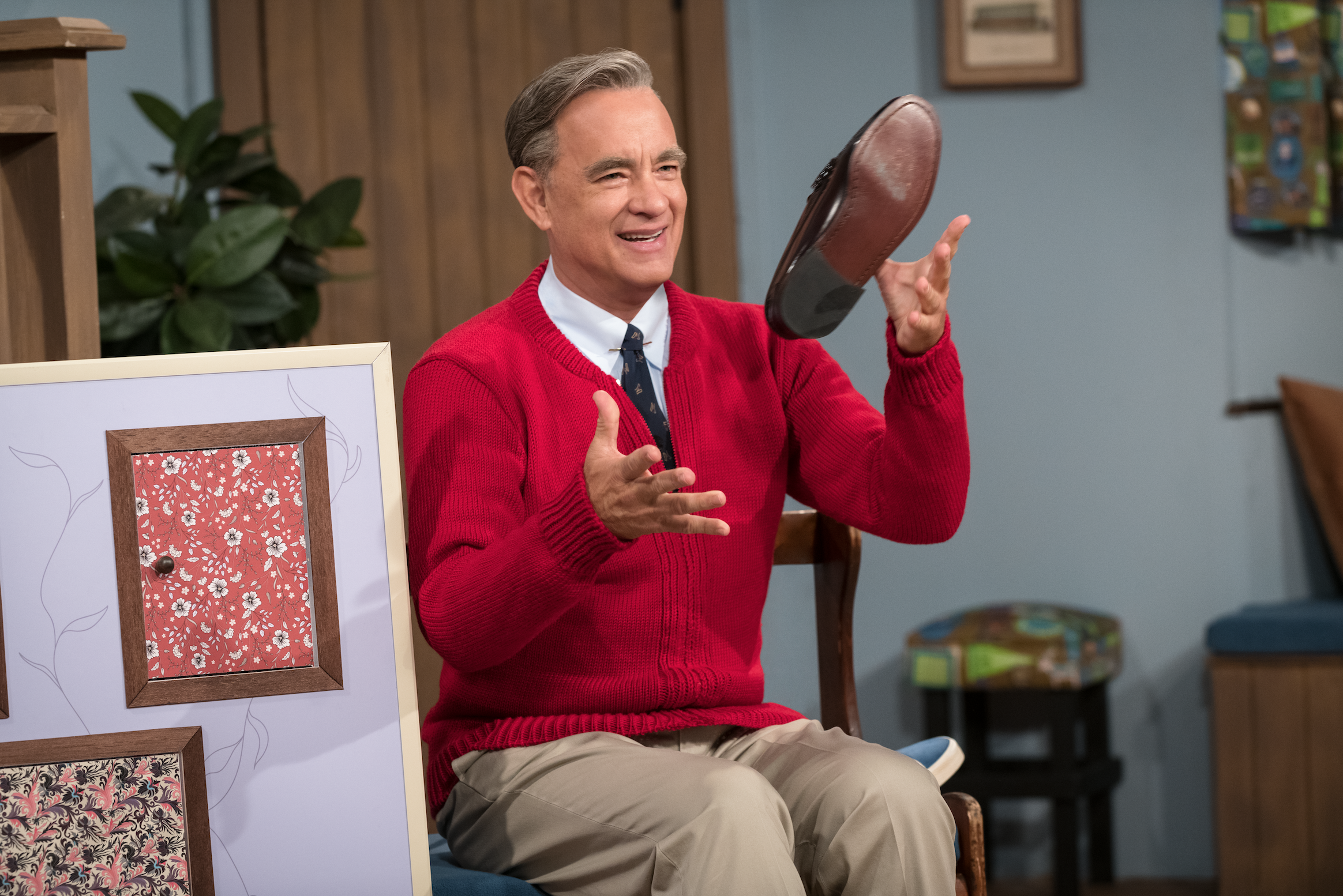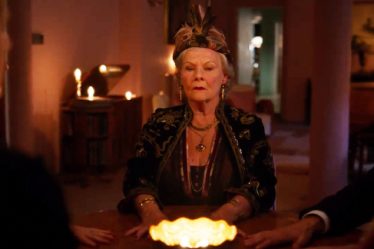
In director Marielle Heller’s new film A Beautiful Day in the Neighborhood Tom Hanks as Fred Rogers says, “If it’s mentionable, it’s manageable.” Though he often explained his philosophy of life in ways both children and adults could understand, this quote truly speaks to the thoughtfulness and intensity with which the iconic television host of his PBS show Mr. Rogers’ Neighborhood approached his work and his life. It also speaks to why this film is perfectly timed. Our country, and indeed the world, has reached a point at which people speak at each other without listening, and many have lost the ability to converse with kindness. Though not dressed in Yuletide finery, A Beautiful Day in the Neighborhood, through the lens of one transformational relationship, shows how living with authentic compassion can change the world one person at a time, making it an ideal film for the holiday season.
The film is inspired by writer Tom Junod’s 1998 profile on Fred Rogers “Can You Say Hero?”, and is centered on embittered cynic and investigative journalist Lloyd Vogel (Matthew Rhys), who is asked to write a short article on Mister Rogers for a series on heroes. When he meets Fred Rogers, he expects to find a-far-less-loving-and-perfect man pretending to play his tv persona, but instead finds an open-hearted, quizzical man with a quick intellect, and an intense, authentic interest to know him. It puts him off. Way off. Lloyd is damaged. He has burnt many bridges, in his career and in his life, because he continues to drag pains from his past into his present. His wife, and mother to their newborn, Andrea (memorably played by Susan Kelechi Watson) loves him regardless of his brokenness, but supports his working towards healing himself. His anger stems in large part from his fractured, estranged relationship with his father Jerry (Chris Cooper). With the help of Fred Rogers, he must come to terms with his feelings and find forgiveness for himself and those around him, but it won’t be easy. It will mean enduring sorrow, letting go, and finding trust.
Though Hanks as Rogers is essential to the story, he is not the lead, but rather the catalyst for Lloyd’s change. That being said, to make the film succeed, it is essential for Hanks to believably embody the beloved figure, and that he does. His portrayal is no caricature. He captures the cadence of his speech and bone deep assurance of his love for humanity. In fact, it is in very first moments of the movie that he appears on the Mister Rogers set, going through the ritual fans of the show know and love, which is a gutsy but brilliant move on the part of the filmmakers. We settle in, knowing we can take the cinematic journey trusting Hanks as guide.
What Heller brings to the film as director is her masterful skill with pacing, and her trust in each performer’s ability to allow for silences and real interactions. Anyone who has watched Mister Rogers knows how carefully and deliberately Fred spoke. In the film, however, we see his patience and centeredness both on and off the set of his show. Heller, especially in scenes between Hanks and Rhys, brings home the power of kindness, observation, and compassionate listening as they fill the spaces between their dialogue.
It’s fascinating to watch them, Hanks as Fred in his complete comfort with himself, and Rhys as Lloyd, in the moment to moment struggle with his feelings, and his terror at being seen. Every scene is the antithesis of all the bombast of blockbuster movies, where every second is overstuffed. The ability of Heller to create and maintain this tone and pacing, while keeping connection and building emotional resonance with the audience, is something deserving of the highest accolades.
It would be nice if this didn’t become another example of Heller creating a great piece of cinema, only to be overlooked at awards season, like she was for last year’s Can You Ever Forgive Me?. One thing beyond dispute is, though she hires talented actors, she also mines them for some of their best work. It bears mentioning that Hanks, who had repeatedly passed on taking on the role, said yes after Heller was attached as director. It’s frustrating that when female directors make what are considered to be auteur-driven, less approachable films they are dismissed, and when they make heartfelt, emotionally resonant crowdpleasers they are dismissed. Here is a nuanced, heartfelt, creative story with both heartbreak and hope. Might this be enough to get awards attention?
Much has been made of Fred Rogers’ influence on generations of children, and his aid in their understanding of hard subjects like death, anger, and the importance for compassion. With a message that life is better when we treat every person we encounter with respect and empathy, A Beautiful Day in the Neighborhood reaffirms him as the sort of hero we could use in our greater American neighborhood right now.
5 out of 5 stars



